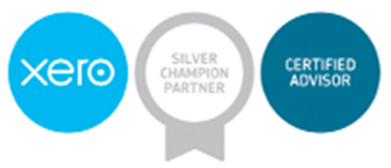
All limited companies operating throughout the UK, regardless of their size, should be aware of the 2024/25 dividend rates. This is because there are a whole host of dividend tax rates that affect how much money you can take from your company in the form of dividends.
Understanding dividend rates is crucial for ensuring you comply with tax regulations while maximising your income. With the right guidance, you can make the most of your dividend allowance and optimise your financial planning.
If you’re struggling to get to grips with dividend rates in the UK, you have certainly landed in the right place. We have created a helpful guide outlining everything that you need to know.
What is a dividend allowance?
At the beginning of every tax year, every individual is assigned a dividend allowance which they can use regardless of the tax rate they pay.
Get A Free Quote
We believe in working with our clients to make accountancy services easy. Get year-end accounts, CT600 corporation tax, payroll, bookkeeping and management accounts made easy.
For 2024/25, the dividend allowance is a key figure to consider. It’s important to note that the dividend allowance can change from year to year, so keeping updated with the most recent information from HMRC is vital.
In addition to this, each individual also benefits from a personal allowance. For the 2024/25 tax year, this allowance remains a crucial aspect of your tax planning. This means that an individual can earn up to a certain amount tax-free within the current tax year. However, once you start earning above the dividend allowance, the tax you will pay depends on the dividend tax rates, which we have listed below:
Dividend Allowance:
For the 2024/25 tax year, the dividend allowance is £500.
Dividend Tax Rates:
It is very important to note that the dividend tax rates have changed. The rates you provided are from a previous tax year.
For the 2024/2025 tax year the dividend tax rates are as follows:
Basic rate: 8.75%
Higher rate: 33.75%
Additional rate: 39.35%
Personal Allowance:
The personal allowance remains at £12,570.
It’s essential for all individuals to understand which dividend tax rate applies to them based on their total income. This is calculated after taking into account your personal allowance, and any other income you may have.
Do you pay tax on dividends?
Whether or not you pay tax on dividends will depend on your total dividend income. For self-employed individuals, it is crucial to use Self-Assessment to inform HMRC of any dividend earnings. If your dividend income exceeds £10,000, it must be included in your tax return. For those earning less than £10,000 in dividends, it’s important to contact HMRC directly or speak to your accountant.
An accountant’s expertise can be invaluable in ensuring you navigate dividend-related tax matters correctly and efficiently. They can help you understand your tax obligations, calculate your dividend income accurately, and ensure you’re taking advantage of any available tax planning opportunities. Furthermore, with the 2024/25 tax year bringing potential changes, having an accountant review your financial strategy is more important than ever.
What are the benefits of taking dividends?
One of the key reasons individuals take dividends from their business is that it is often more tax-efficient than relying on a salary alone. By structuring your income to include dividends, you can benefit from lower tax rates and maximise your take-home pay.
However, for dividends to be issued, your company must have enough profit to cover the payments. Dividends are generally paid from profits after accounting for Corporation Tax, so careful financial planning is essential.
It’s important to consult with an accountant to determine the most tax-efficient way to extract profits from your company, especially with the shifting tax landscape of 2024/25.
For more detailed insights, check out our blog on how much dividend you can take.
Why choose React Accountancy?
Here at React Accountancy, we provide trusted accountancy services to start-ups, established businesses, and multi-national companies across a wide range of industries.
From the moment you get in touch, our approachable, friendly, and professional team will go above and beyond to ensure you receive the right advice, support, and accountancy solutions for your business. Our team has extensive experience handling complex financial matters, including dividend planning and tax optimisation.
We’re here to help you make informed decisions and keep your finances on track.
Contact Us Today
If you have any questions about dividends or need expert accountancy support, don’t hesitate to get in touch. Call us on 0191 432 4110 or email us at info@reactaccountancy.co.uk. You can also visit our contact page for more information.
We provide our services across Manchester, Stockport, London, Birmingham, Cardiff, Bristol, Glasgow, Leeds, Nottingham, Leicester, Edinburgh, Sheffield, Bradford, Coventry, Liverpool and Belfast.
Get A Free Quote
We believe in working with our clients to make accountancy services easy. Get year-end accounts, CT600 corporation tax, payroll, bookkeeping and management accounts made easy.




